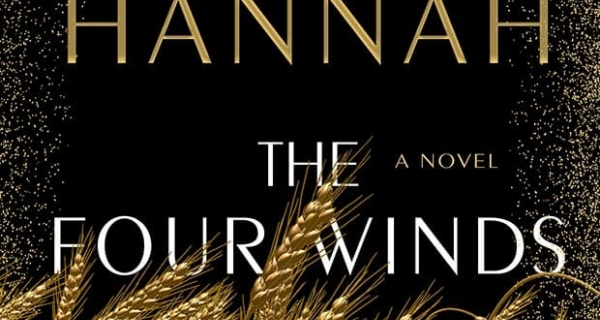Set in the 1930s and telling the story of a family who fled Dust Bowl-ravaged Texas for California, The Four Winds by Kristin Hannah is not a comfortable book to read. That said, however, its descriptive prose and well-developed characters has the potential to draw readers in, and certainly kept me turning to the next page. Furthermore, despite the immense pain contained in the book’s pages, there is also an undercurrent of hope and survival, making it a worthwhile read in the current times. At over four hundred pages long, it is an excellent book for summer reading.
Elsa Martinelli, the main character of the book, is a woman who does not know her strength. As a young girl, a heart condition kept her from participating in many activities. Her family treated her as weak and as an outsider, and the resulting feelings of inadequacy haunted Elsa in a failing marriage and into middle age. However, she rises from these ashes to find family in her children and mother- and father-in-law, whom she fights fiercely for. This fierce love leads her to make one of the toughest decisions of all – to leave the Texas farm that is her family’s livelihood, but where everything is dying as a result of the dust storms, in search of a better future for her children.
However, life is not automatically better in California. Although the Martinellis escape the dust and its associated health consequences, work is hard to come by. Migrants fleeing the dust storms, referred to by California locals by derogatory terms such as “Okies” or “your kind,” were forced to live in inhumane tent camps, scraping together money to afford the most necessities. Though the story takes place nearly a century ago, it is hard to read it and not draw comparisons to the treatment of twenty-first century immigrants and refugees. So much progress has been made in so many areas since then, and yet we still tolerate, and even perpetrate, the same gross violations of human rights and dignity:
“Elsa couldn’t believe people lived this way in California. In America. These folks weren’t bindle stiffs or vagabonds or hobos. These tents and shacks and jalopies housed families. Children. Women. Babies. People who had come here to start over, people looking for work.”
However, fortunately, the human spirit also remains today as it did in the 1930s. In the Author’s Note, Kristin Hannah observes that strength can be drawn from others’ persistence in past hardships and applied to current struggles like the pandemic: “We’ve gone through bad times before and survived, even thrived. History has shown us the strength and durability of the human spirit. In the end, it is our idealism and our courage and our commitment to one another – what we have in common – that will save us.”
Even when things kept getting worse for the Martinelli’s when it seemed as though it was already as bad as it could get, they held onto one another, to friends, and to hope for better days. That is a message well worth four hundred pages.



